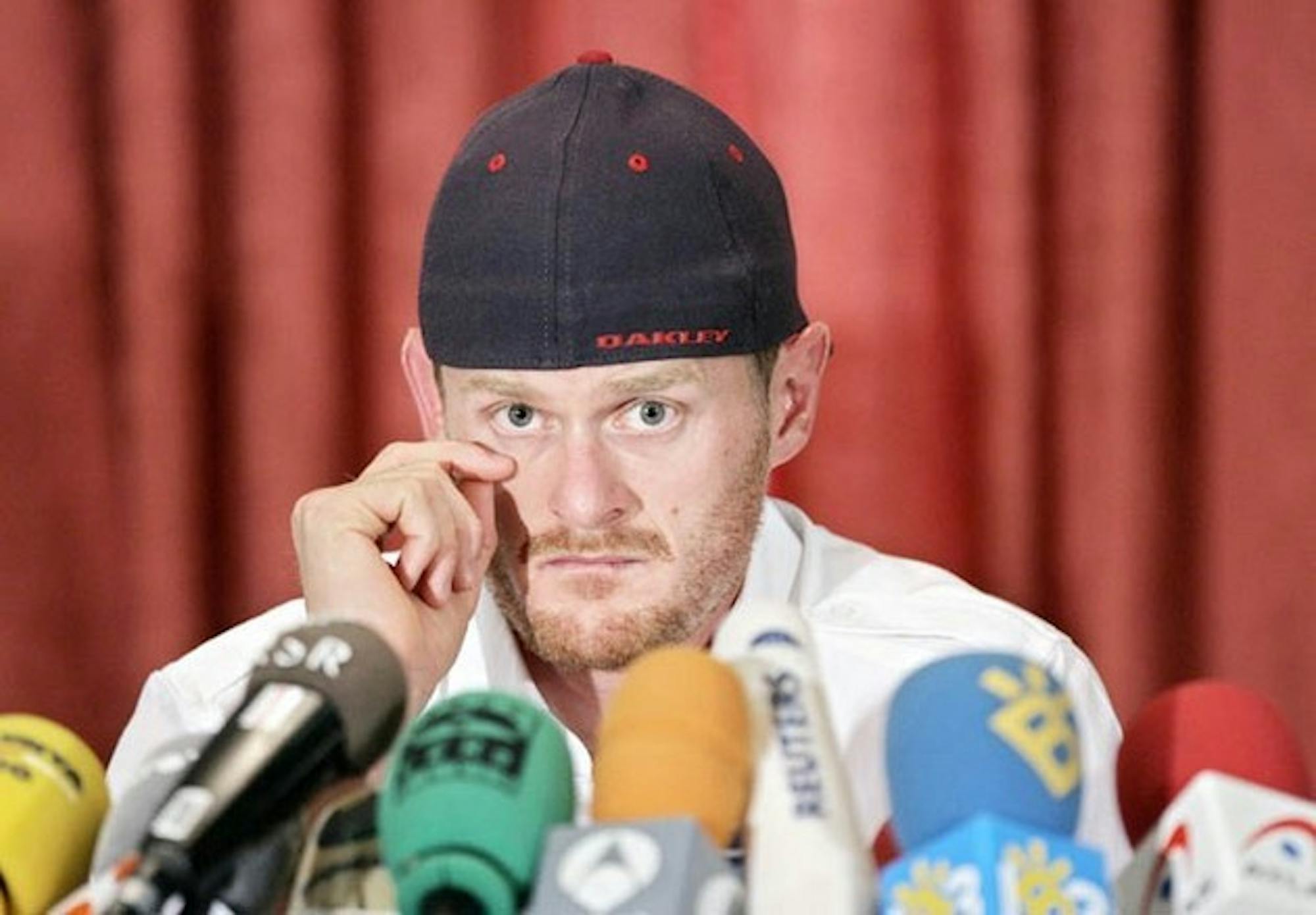As the world awaits the outcome of the Tour de France winner's backup urine test, it appears that no matter what result the lab finds, the controversy and underlying problems will remain. Regardless of the awaited results, the Landis situation typifies the crisis damaging professional sports and the imperfect solutions being applied.
First, the damage has been done. Landis' victory has been tarnished. And a potentially great American sports hero has become the center of yet another great American sports doping controversy.
The controversy in question swirls around Landis' testosterone-to-epitestosterone ratio, tested immediately after his remarkable comeback during stage 17 of cycling's biggest race. Science claims that imbalances in the ratio are indicative of steroid usage. Too much testosterone (a higher ratio) generally proves steroid usage, and too much epitestosterone (a lower ratio) generally proves the masking of steroids. Landis' ratio was 4:1, four times higher than the expected normal ratio of 1:1. Landis has adamantly defended his innocence, stating last Friday that "the levels that I've had during the Tour and all my career are natural and produced by my own organism."
Nonetheless, if the backup test corroborates the ratio found in the original, Landis will be stripped of his title. If the backup demonstrates a lower ratio than originally found, he will be exonerated -- at least in the court of professional cycling.
However, the court of public opinion operates under markedly different standards. The results of this week's lab report are not out yet, but the asterisk above Landis' name has already been written. After all, no matter what the new test finds, this controversy will not end. If the ratio is still high, Landis will most likely continue refuting it, blaming scientific error. If the ratio reverts to normal, skeptics and cynics will continue doubting the validity of the victory and the sport.
Thus, Floyd Landis is another unwitting torch-bearer for the new era of professional sports, heralding a time when fans can no longer simply debate the athletic strengths and weaknesses of their favorite teams and players. Now, fans must actively participate in the search for truth. Now, in order to even debate sports, fans must argue about the complexities of the human endocrine system. Aspiring Sports Illustrated writers will soon need a double major in forensics and biology just to be in the know.
Simply put, there is a problem in desperate need of a solution. Steroids are not good, and the Jose Canseco school-of-thought, advocating making them legal in order to level the playing field, is just foolish. Aspiring young athletes who emulate the pros cannot think it is acceptable to take potentially dangerous performance-enhancing drugs to gain an edge.
Therefore, it is important to recognize the merits in the Landis controversy. Stringent drug testing is a good foundation to a solution, even if disputes like this one surface. Furthermore, the onus of ensuring that athletes are not doping should not only fall on the hands of the race organizers and league operators, but it should fall on the hands -- and pockets -- of the corporate sponsors. In other words, the companies who provide such enormous monetary incentives for players to perform should also provide the disincentive for players to use drugs to enhance their performances. I commend Landis' team sponsor, Phonak, for suspending him until the results are conclusive. Unfortunately, other professional sports' sponsors have not acted accordingly. Barry Bonds was even rewarded with a reality TV show for his still-ongoing doping controversy. All sponsors, in all sports, should require frequent performance-enhancing drug tests to be taken by their players. Even then, there is still a need for better, more comprehensive solutions involving the technology that traces drugs and the culture that promotes them.
Floyd Landis may be an innocent victim or a malicious perpetrator. Barring a confession, we will never conclusively know which one. Nonetheless, this controversy will hopefully catalyze positive change.




